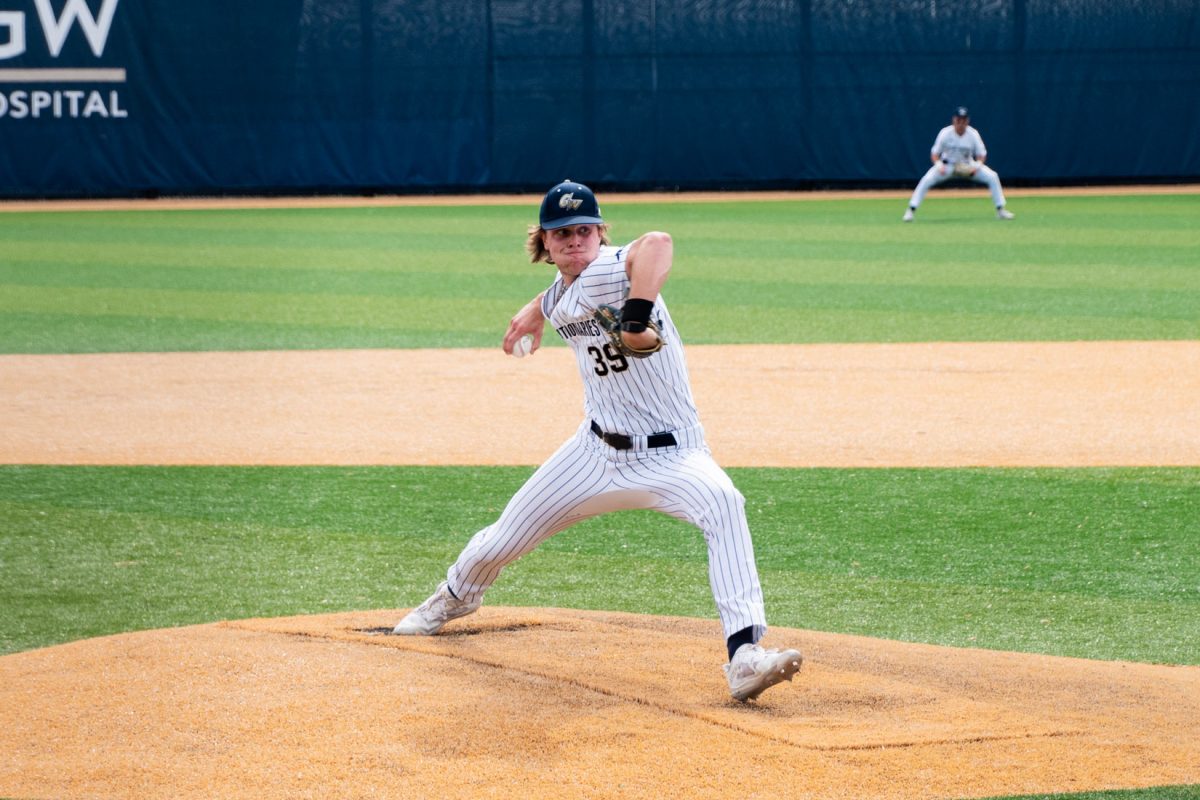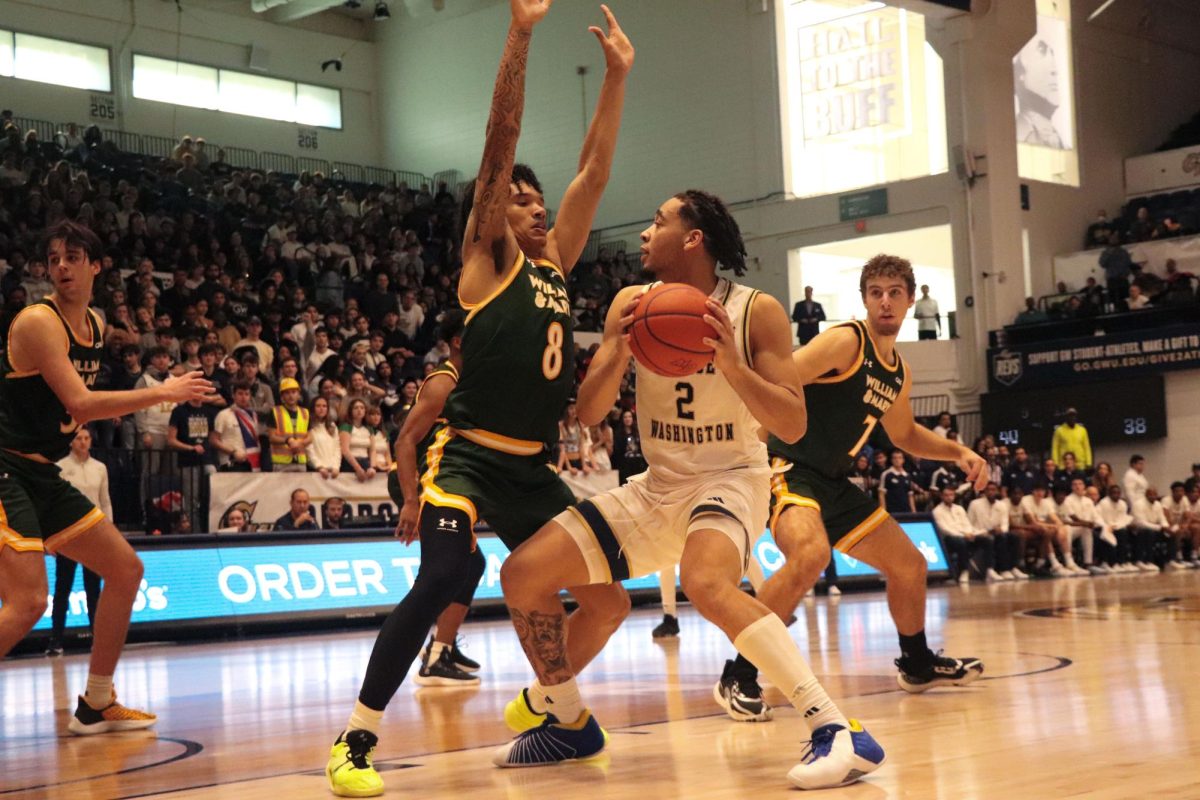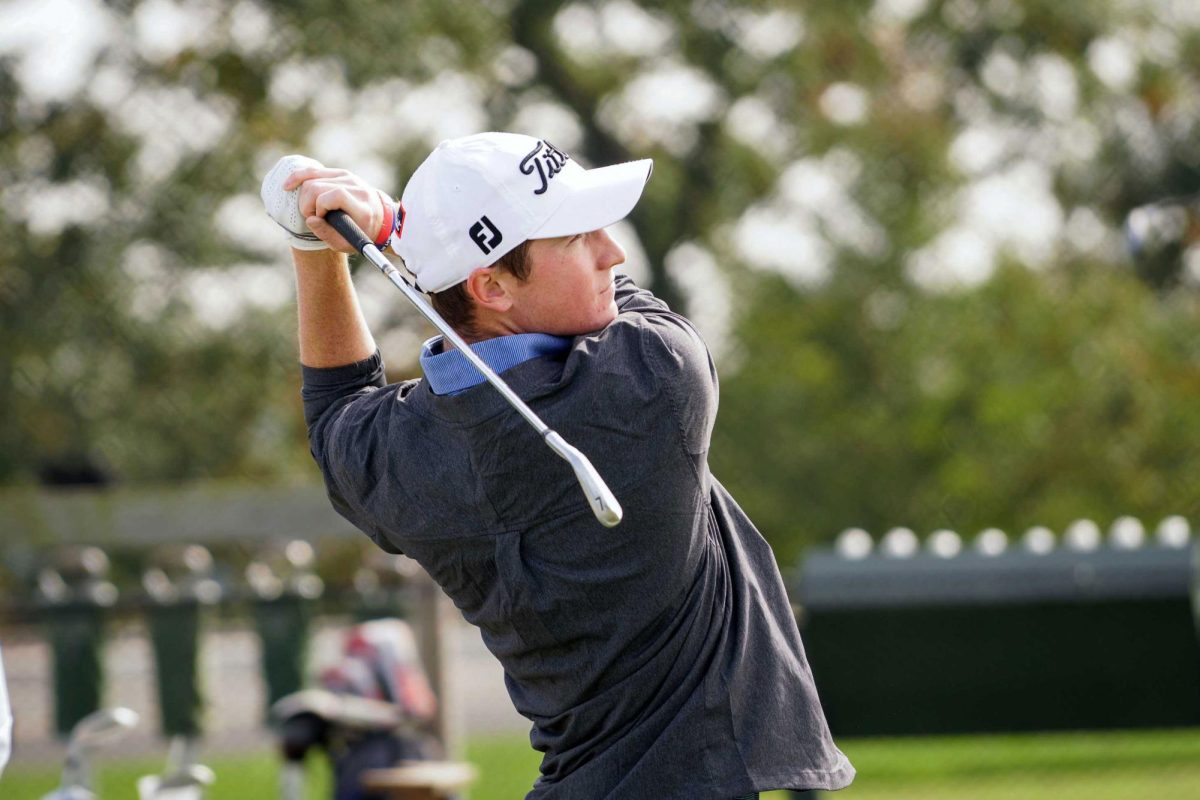Freshman Anthony Smith’s teammates know him as a quiet man. The 6-foot-1-inch southpaw simply lets his bat and his left arm do the talking.
“If he wasn’t hitting home runs all the time, you wouldn’t even know he’s there,” freshman catcher Steven Wallace said. “What I think is great about him is that he is so unassuming – he just gets up there and does what he has to do.”
Smith’s contributions at the plate and on the mound are two major reasons why the GW baseball team (24-14, 9-3 Atlantic 10) is atop the A-10 standings this year. He leads the league in RBIs (51), and is second in home runs (10) and third in slugging percentage (.639).
The power hitter has also been shutting down opposing batters. As a starter, he has compiled a 5-1 record and leads GW with 10 starts. In more than 54 innings, he has struck out 48 batters, compiled an ERA of 4.61 and allowed only two home runs. Because the Colonials’ home field, Barcroft Park, is known as a hitter’s paradise, not giving up the long ball is key, said Jay Quinn, a sophomore catcher.
Smith’s list of accomplishments has earned him three A-10 Rookie of the Week awards, while no other player in the league has been named rookie of the week more than once.
“I honestly didn’t see it coming,” Quinn said. “He kind of turned himself into a totally different player over the winter. I didn’t see him becoming a phenomenon, but he is definitely not a mistake.”
His teammates may not have predicted the eye-popping numbers so soon, but on the other hand, Smith said he has always been quietly sure of himself.
“I am pretty confident in my ability and I know what I can do,” he said. “If I hit my spots and shake things up well, I can beat anybody.”
His adjustment to college baseball has also been quicker than his teammates thought possible, leading sophomore infielder Bill Powell to say that it’s not just Smith’s physical prowess that is impressive.
“The way he has adjusted mentally is unbelievable,” Powell said. “Most people take a couple of years to get to the level of maturity he has reached, both on the mound and at the plate.”
Smith said part of his maturity came from playing for the Long Island Cardinals, an Amateur Athletic Union team, last summer. “Last summer without a doubt prepared me for college baseball,” Smith said. “We traveled all over the country and played against some of the best teams in the country. It really showed me what I could do. ”
Smith has had to adjust his pitching style for college. He currently throws a 90-mile-per-hour fastball and has learned to work in an effective breaking ball and changeup.
“In high school, I could just blow right by guys,” Smith said. “If you put it down the plate (in college), no matter how hard you throw it, they are going to hit it. I have really been working to spot the ball a lot better, hit my spots and shake things up by using breaking stuff.”
The hardest part of college baseball, Smith said, is adjusting to the demands of a 60-game season.
“It’s a lot of work. To tell you the truth, it’s almost like a job,” he said. “We are there all the time, and you really have to try to balance school and baseball. It’s a big jump from high school.”
Even with so much early success, Smith is not taking anything for granted. Continuing to work hard, he said, is his top priority.
“I just don’t sit back and expect to do well. I know every time that I go out there I have to keep working for it,” he said. “At this level, if you lay back they are going to beat you … You can’t expect it to happen. You have to make it happen.”
Smith will play at GW until at least his junior season because Major League Baseball rules state that a player cannot enter the collegiate draft until after his junior season or 21st birthday, whichever comes first.
But if Smith continues playing at this level for the next two years, he said he will think about entering the major league draft.
“I am definitely considering it after junior year,” he said. “I feel if I am drafted very high, it’s a once-in-a-lifetime opportunity. I could always come back to college and finish up that one year.”







